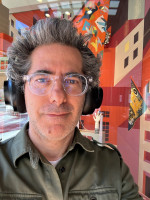AI for Sustainable Food Production from Farm to Fork
Status:
Start date:
End date:
Indoor vertical farms (IVF) can create symbiosis with their host-buildings, improving energy and resource efficiency of the whole system. This may become a key factor in global greenhouse gas (GHG) emissions reduction, and also demonstrate how integration of other infrastructures may lead to sustainable urban areas. Cities occupy 2% of the planet’s landmass. With 75% of the population living in cities in Europe, thus moving food production to the consumers creates additional advantages, e.g. shorter transportations. Through its presence IVF may also facilitate the public’s participation and engagement in climate actions. Our societies are under rapid transition towards electrification and digitalization, thus there is an urgent need to reevaluate what a city is, and how they will need to evolve in order to meet future needs.
The project will develop, firstly, a multi-agent based resource and climate model that explains the flows of information and resources between IVF, its host-building, and other actors in the whole value chain ending with the citizens; secondly, a proof of concept for autonomous orchestration of the IVF. Two annual demonstrations, and scientific assessments of the model and the demonstration results for generalized knowledge will be produced.
The major expected impacts are: 1) resource efficiency and optimal control of an IVF, and enabling exchange of energy, heat, and water between infrastructures to reduce total GHG emissions; 2) autonomous and connected farming for interaction with the after-production actors for capacity and demand matching, reducing food waste, and encouraging behaviour change towards sustainable consumption.
| First Name | Last Name | Title |
|---|---|---|
| Monica | Odlare | Professor |
| Baran | Çürüklü | Senior Lecturer |
| Afshin | Ameri E. | Doctoral student,Lecturer |
| Carina | Sjödin | Doctoral student,Lecturer |
| Sepehr | Mousavi | Doctoral student |
| Alex | Jonsson | |
| Charlie | Gullström |
| Partner | Type |
|---|---|
| RISE Research Institutes of Sweden | Academic |
| SweGreen AB | Industrial |


Baran Çürüklü, Senior Lecturer
Email: baran.curuklu@mdu.seRoom: Utility Muffin Research Kitchen
Phone: +46 (0)73-9607453



